Straight Outta Compton has a magnifying glass in its view. After all it features the portrayal of one of the most iconic hip-hop groups of all time, N.W.A. (Niggaz With Attitude) – no pressure. You certainly wouldn’t get that sense speaking with Jonathan Herman, one of the film’s screenplay writers, even a day before its official release. “The short answer is that it’s probably the only thing I’ve ever sort of been good at,” he jests, when asked about his love for writing.
Before focusing on the written word, he served as an assistant on Paul Thomas Anderson’s Boogie Nights and helped in the development and production of The Talented Mr. Ripley. Despite his easygoing nature, Herman fully understands the impact that Straight Outta Compton can have on a new generation in conjunction with N.W.A.’s classic message, and he’s not shy about speaking on it.
I think [Hollywood] might be too gun shy, they don’t want to be too political, but this movie is political, and unashamed about it and that’s the only way to make progress.
WHAT KINDS OF FILMS INSPIRE YOU RIGHT NOW? What inspired me to begin with were all the great directors like Woody Allen, Robert Altman, those ’70s guys. When I was growing up I just digested every movie. I get inspired by anything that’s new and exciting. I like to go to Sundance, see independent cinema and I’m inspired by music. I go to see a lot of live music and that’s probably one of the main reasons why I got this job (Straight Outta Compton). I have a relationship with one of the producers of this movie, Scott Bernstein, who’s also a big music head. Straight Outta Compton had this new writer and he came right to me saying, ‘This is going to be your next movie, I know you’re going to want to do it,’ and he was right.
WERE YOU A FAN OF N.W.A. SPECIFICALLY? Very much – I graduated high school in ’91, so I was totally into high school when all of the early gangster rap was coming out and I was into N.W.A., Public Enemy, etc. I was a big hip-hop fan. I was this white, Jewish guy from a suburb in Connecticut (laughs), but I really was. All of us guys loved hip-hop.
ONE OF THE MOST IMPORTANT ASPECTS FOR A NON-FICTION FILM COMES FROM ITS AUTHENTICITY, HOW DID YOU OR THE TEAM GO ABOUT MAKING SURE EVERYTHING SOUNDED AUTHENTIC IN STRAIGHT OUTTA COMPTON? Gary [Gray], Dre and Cube were very involved in the development of the script, re-writes and helping me rearrange things that didn’t come off as authentic enough, because there’s always only so much that I can do. Everything I wrote was based on stuff they told me, it wasn’t like I was making anything up, it was all based on their real stories and the things they told me. By all means, once I had written the draft and we were in the room together for hours and hours, banging out changes, [Gray] would always let me know that this isn’t right, or that line of dialog isn’t right.
YOU WERE DEALING WITH REAL LIFE EVENTS, REAL PEOPLE, UNLIKE A FICTIONAL TALE. HOW DO YOU, AS A SCREENWRITER, APPROACH A PROJECT LIKE THAT? You have to take a story or a series of events. Everything in that movie was really mapped out, so we knew what the shape of the movie was, we knew what would happen, what sequences would take place in what order. So when you go to the story and you’re writing scenes, you have to make them work as movie scenes. There has to be a bit of a heightened reality. If you just play it straight like, ‘this is the way it actually happened,’ then it might be boring. You have to juice it up a little bit and every scene has to have a beginning, middle and an end – a kicker to lead into the next one.
FROM YOUR OWN PERSPECTIVE, WHAT’S THE CULTURAL SIGNIFICANCE IN RELEASING THIS FILM NOW, WITH THE #BLACKLIVESMATTER MOVEMENT AND CERTAIN INCIDENTS INVOLVING COPS? It’s incredible; the timing was great. I think anything that spurs discussion amongst its people in the country, in the world about that subject; it’s such an influence. The saddest thing is waking up every day and turning on the news and it just keeps happening. Another story of a White cop killing a Black kid for no reason, and they’re still in a state of emergency in Ferguson where you aren’t even allowed to protest – it’s disgusting. When I was writing the movie it hadn’t exploded yet, it was sorta brewing.
I’m glad that the movie can be there as a symbol for [the #BlackLivesMatter movement]. It’s also a big studio movie that isn’t afraid to sugar coat it.
But then last summer when they were shooting the movie, that’s when it all happened, so it sorta has become this timely thing. In the movie with the confrontations with the cops, and the dehumanization of these kids by the cops, it’s amazing how close they are to what is happening now. I think luckily the LAPD has done a lot of reforming; a lot of police departments have a much better relationship with the inner city and communities. But obviously there’s a huge part of the country where it’s just as bad, if not worse. With all the violence in the movie, we still don’t kids getting shot, and it seems like it has gotten worse with the level of violence and the trigger happiness of all these cops. I’m glad that the movie can be there as a symbol for that movement. It’s also a big studio movie that isn’t afraid to sugar coat it.
WHAT DO YOU WANT VIEWERS TO COME AWAY WITH WHEN THEY SEE STRAIGHT OUTTA COMPTON? For me I just want people to have a good time, be entertained. I want them to laugh, feel something, cry and have that whole experience. I think the gravy on top of that is just the fact that it is so relevant and will get people thinking. Especially in parts of America where they sort of have the blinders on, or don’t want to think about it, and I think it’s good for them to be challenged … I think everyone needs a good shot in the ass of truth and to hear what’s going on. Hopefully it can make more big studio movies be more grey in that capacity to take on these issues. I think [Hollywood] might be too gun shy, they don’t want to be too political, but this movie is political, and unashamed about it and that’s the only way to make progress.
THIS LAST QUESTION HAS TO BE ASKED. THERE’S A MOMENT IN THE FILM WHERE ICE CUBE’S SON, O’SHEA JACKSON JR. (WHO PLAYS CUBE IN THE FILM), SAYS ‘BYE FELICIA,’ AN ODE TO THE MOVIE FRIDAY. DID YOU HAVE ANYTHING TO DO THAT? You know; I don’t know the origins of where Cube referenced it in Friday. All I know is that when I was writing the script, I would kind of try to crack up Gary Gray by putting Felicia references in the script (laughs), sometimes not even the dialog, I’d just put ‘Bye Felicia,’ just to make him laugh. In that one scene I wrote, the groupie in the hotel, that was a real story that happened, but I decided to name her Felicia and that sort of became a ‘Bye Felicia.’ I don’t know if that has anything to do with Cube’s ultimate use of it. I just think it’s a shout out.
YES, GARY GRAY MENTIONED THAT HE SAW IT WRITTEN IN THE SCRIPT, SO THEY DECIDED TO USE IT IN THE SCENE. I think they later decided to add ‘Bye Felicia’ after that scene, after I named that character Felicia (laughs). It’s the kind of shit that happens in the room when you’re working on a script to keep things lively.
Photos courtesy of Jaimie Trueblood (© 2015 Universal Studios. All rights reserved.)

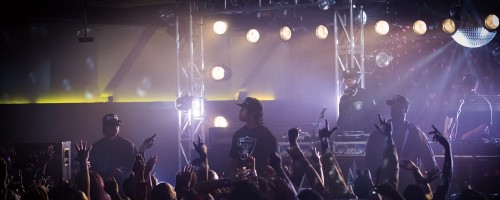
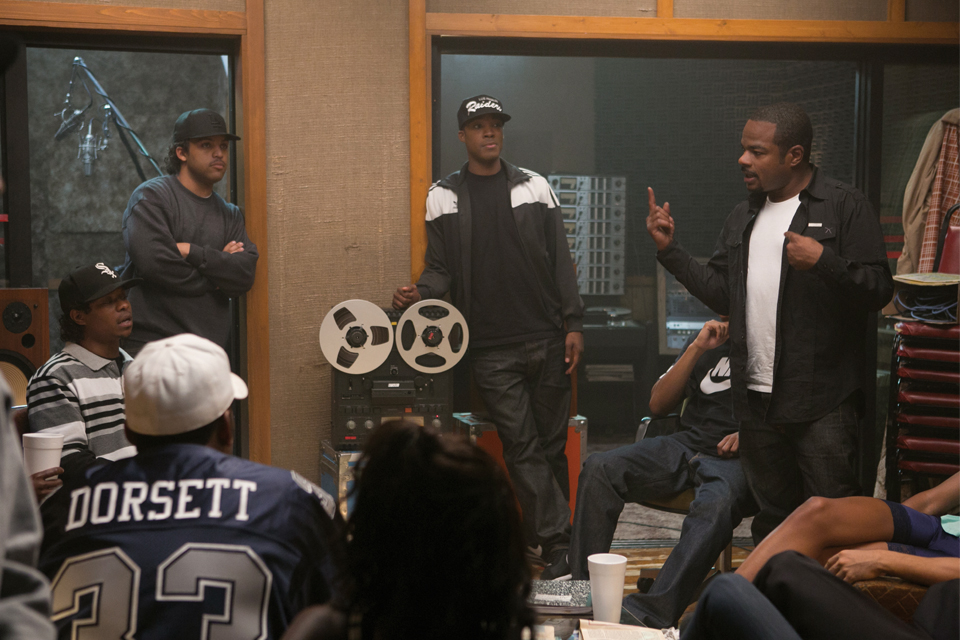
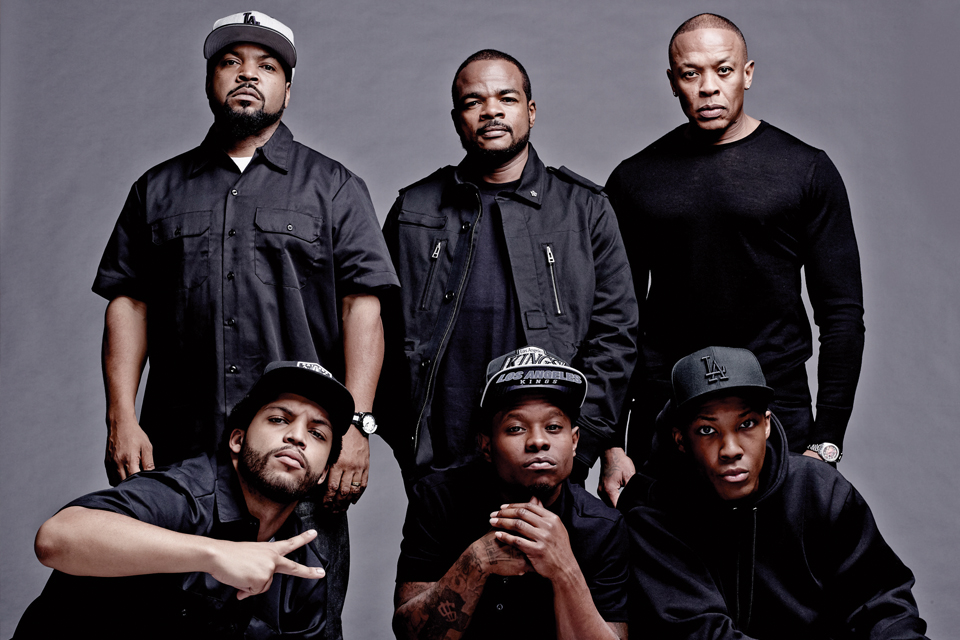
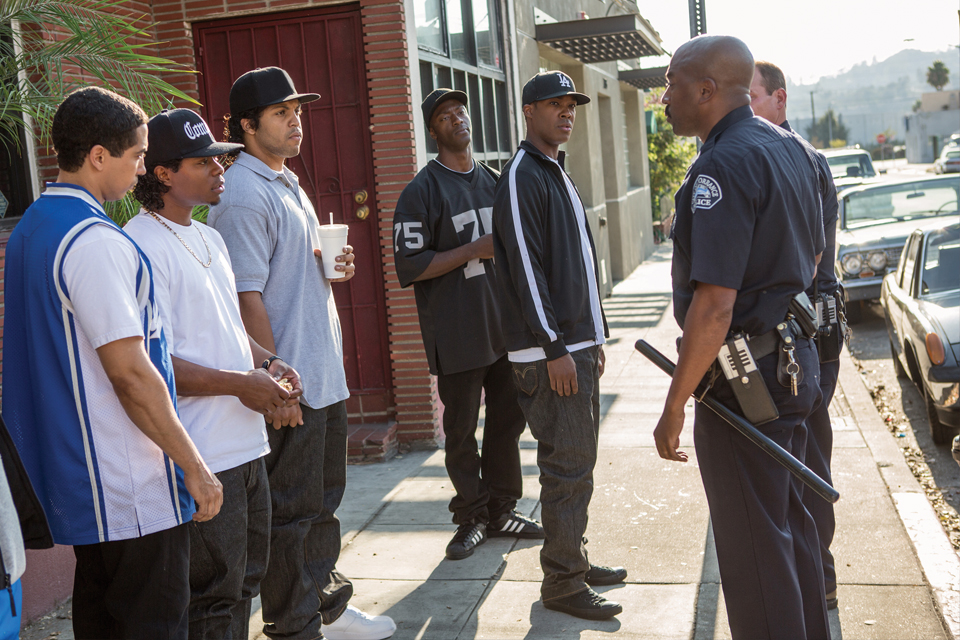
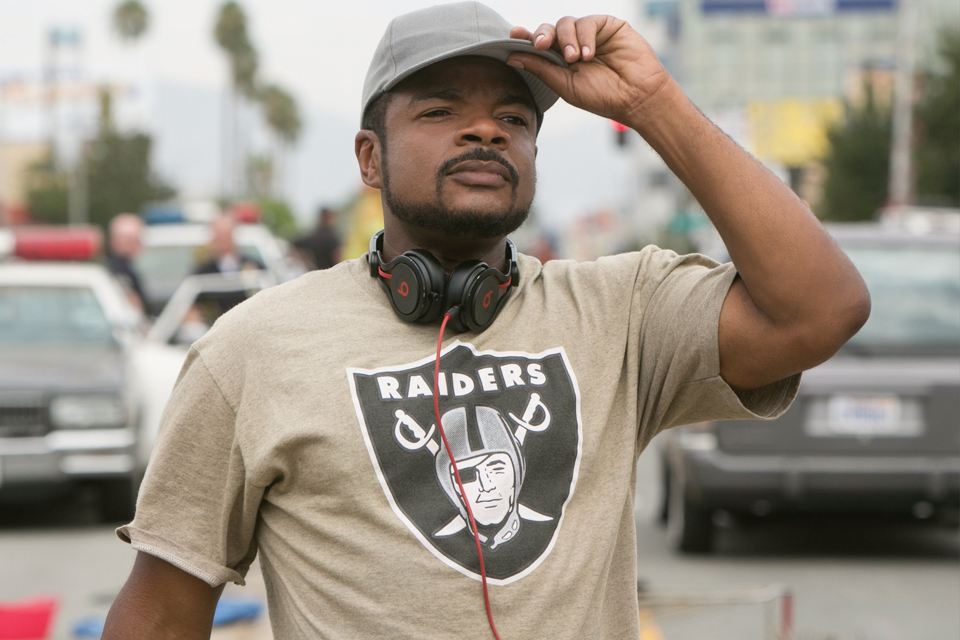


Comments are closed.